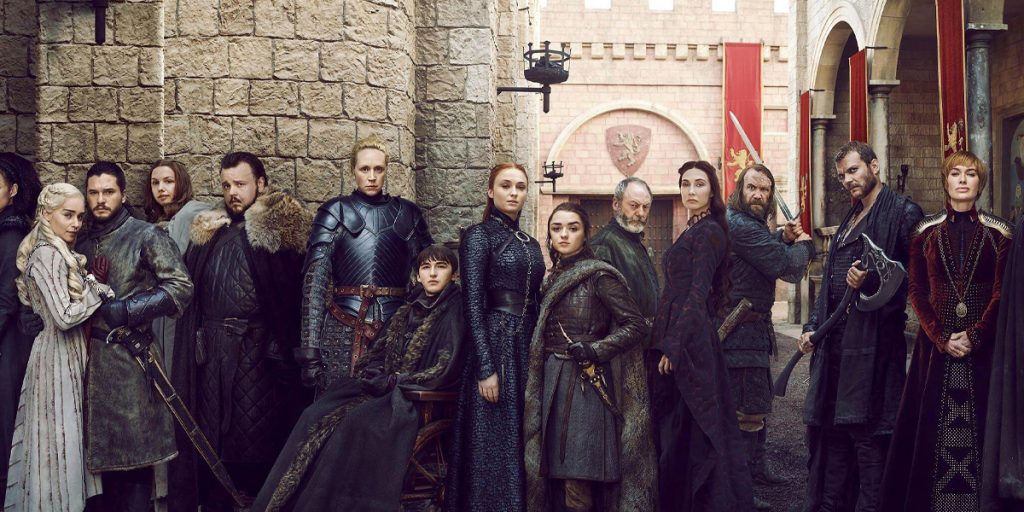Two years after its conclusion, Game of Thrones fans are still disappointed at the show’s ending and how pointless it made this 10-year journey feel like.
Game of Thrones dominated the small screen for nearly a decade, taking us to the fantasy world of Westeros, where noble families betrayed one another in order to claim lands, gain power and fight to see who would sit on the Iron Throne. During its run, the HBO hit series, based on George R.R. Martin’s “A Song of Ice & Fire,” was often criticized for trying too hard to appeal to general audiences while ignoring what hardcore book fans wanted to see. To this day, books fans argue that one of the main reasons why the show declined in quality is that, in the novels, Martin constantly challenged his characters and readers by introducing new and exciting fantasy elements, showing his love for fantasy through his writing style. On the other hand, Game of Thrones show-runners David Benioff & D.B Weiss tried to oversimplify a complex story and remove as many fantasy aspects from the books as possible in order to appeal to those who aren’t fans of the genre. With Martin never getting to finish the last two novels as he promised he would, the show-runners decided — since novels 6 and 7 were basically non-existent — not to follow what novels 4 and 5 had to set up for the story moving forward. Instead, Benioff & Weiss opted to come up with their own continuation for the HBO series.
This approach to the show proved to be a mistake in the long-run, as Game of Thrones has become an example of how not to end a story on either film or television, a spot that used to go to shows like Dexter, Lost or The Sopranos. As a result, the ending has tainted the franchise’s long lasting legacy that many believed to be untouchable. Interestingly enough, if you ask Game of Thrones fans who were following the show, I’m sure they can tell you people were mostly satisfied with the seasons leading up to the series finale. After the success of season 6, Benioff & Weiss announced there would only be 13 episodes left until the pop culture event came to its conclusion. Optimistic fans hoped Benioff & Weiss’ choice not to draw out the show would mean we could expect 13 high-quality episodes, but that’s not exactly what ended up happening. Season 7 received mixed reactions from both fans and critics, as the writing had clearly taken a significant decline compared to early seasons. Storylines from the books that would have affected character arcs were completely cut in favor of a faster conclusion, while fan favorite protagonists would make out of character decisions that didn’t make sense in order to keep the plot moving forward. These issues were already present in Seasons 5 and 6, but not to such an extent where even non-book readers were noticing these things as well. Regardless, people gave the show the benefit of the doubt and waited two years to see the highly anticipated final season after the show-runners revealed they would take an extra year to “get it right.”
The wait finally came to an end on April 14, 2019, when the first episode of the final season aired on HBO. Season 8’s first two episodes received positive reviews, despite audiences feeling like the show was being rushed to the finish line. Episode 2 saw our favorite characters interact with other fan-favorites and prepared us for the highly anticipated third episode, “The Long Night,” where fans expected certain characters to meet their end. Episode 3 finally aired and, well, fans were mostly confused by what they saw that Sunday night. From a visual standpoint, audiences criticized the decision to film the episode, which takes place at night, with natural lighting in what was supposed to be the show’s biggest battle yet. You could barely see anything due to the lack of lighting used in the episode, which is a problem when you have two opposing armies clashing with each other and you’re not able to tell them apart. Aside from the dark visuals, which were fixed for the 4K Blu-ray release, storytelling decisions continued to be questioned by fans as character arcs that had been built up for years were suddenly thrown away in favor of shock value moments.
In honor of Game of Thrones’ 2-year anniversary month, let’s revisit Season 8 and how it mishandled its characters and storylines in more ways than one.
GAME OF THRONES SEASON 8: A STORYTELLING NIGHTMARE
THE LAST OF THE STARKS
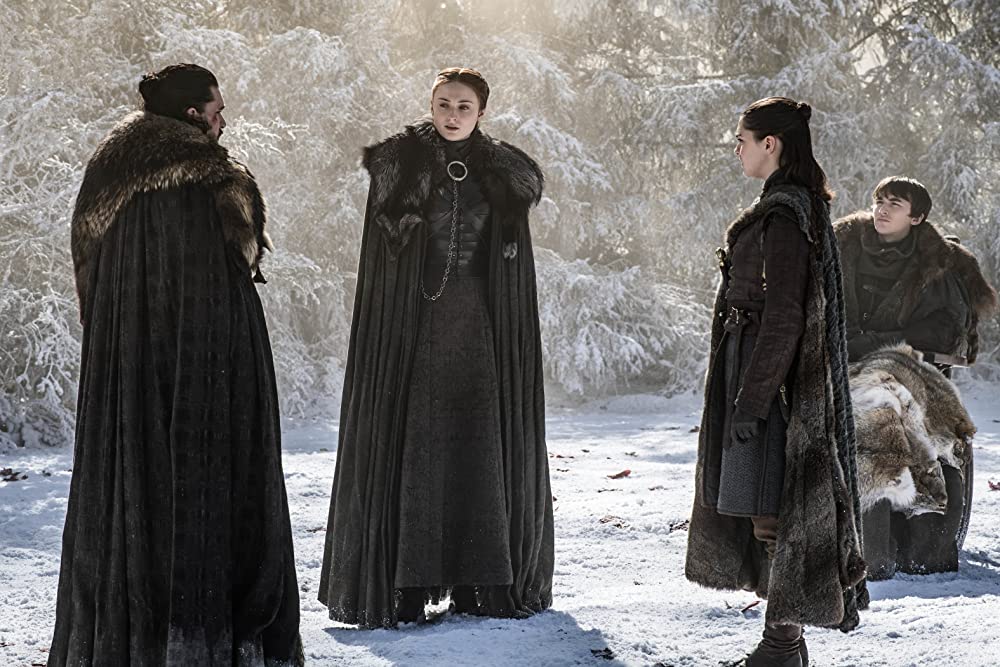
Throughout the series, Jon Snow (Kit Harington, of The Beast Within) was set up to be this foolishly noble hero who would do the impossible to unite Westeros to aid him in his fight against the Night King (Vladimír Furdík) and the army of the dead. After earning the title of King in the North, discovering White Walkers can be defeated with Valyrian steel, and his Targaryen bloodline being revealed, all signs were pointing out for him to be the one to get the final blow against the show’s big bad guy. Of course, that didn’t end up happening during the epic fight against the Night King, and, instead, we got to see Arya Stark (Maisie Williams) defeat him in what was supposed to be Jon’s big moment in the series. Suddenly, our male protagonist’s purpose was given to somebody else and left him with nothing to do for the remainder of the show. That is, until he was needed again in the finale only to have him kill his lover in cold blood, another out-of-character decision. Even worse, the writers never gave Jon Snow closure, or a moment to fully process his real parentage and the identity of his mother, something he’s been seeking answers to since Season 1. Which makes you question, what was the point of making him a Targaryen if you’re not going to do anything with the storytelling possibilities that came with it?
Arya Stark, on the other hand, is a character who’s been on a tragic journey right from the start, in which she’s been forced to see every person she loved die. From seeing her lord father Ned Stark (Sean Bean) be decapitated, to witnessing the massacre at the Red Wedding. Little by little, she’s been descending into a darker place within herself, learning to become a Faceless Man assassin and using her abilities to take revenge against her family’s enemies. In the opening scene of Season 7, we see Arya massacre House Frey in a similar way her older brother and mother were murdered at the Red Wedding, as she promises to kill Cersei Lannister (Lena Headey) for taking part in her father’s death. The thing is, we never get to see this play out. It’s almost as if the show couldn’t have the face-off between Arya and Cersei because she had already killed a main villain, the Night King. So, it begs to question, why give Jon’s big character moment to Arya — who, unlike Jon, had no connection or personal vendetta against the White Walkers — if it meant her not being able to have her own character moment later in the season? Game of Thrones writers argued that having Jon Snow defeat the Night King would have been too predictable, which is why Arya had to be the one to do it. But anyone who knows how the hero’s journey works would argue it’d only be predictable because the groundwork for it to happen had already been laid down for four seasons. Needless to say, Arya Stark doesn’t have anything to offer to the show after she kills the Night King and, like Jon Snow, becomes a background character.
Sansa Stark (Sophie Turner) is a very complicated character to discuss. With Sansa, you have a character who is a constant victim of physical and emotional abuse from day one, but eventually learns how to play the game (of thrones) in order to survive and stand up for herself. The problem that comes with how the show handles Sansa, though, is that it feels like it needs to be reminding you just how smart she suddenly is without actually showing you her wits. A problem that the books don’t have. In Season 8, for example, the show never gives Sansa an actual reason to mistrust Daenerys Targaryen (Emilia Clarke), who abandoned her claim to the throne to help the North. The only real reason why Sansa mistrusts Dany is so she can later on look smart when Daenerys goes “crazy.” In addition, it doesn’t help that the writers, for some reason, decided it was a good idea to explain Sansa only became smart and cunning because she was raped and tortured for the majority of the show. She might’ve ended up being Queen in the North in the end, but at what cost? We are left with a version of the character who isn’t any better than Cersei, stepping on others for her own self gain. This wouldn’t necessarily be a bad thing if the show didn’t pretend she was still one of the “good guys.”
Bran Stark (Isaac Hempstead Wright) was never a fan favorite amongst audiences, with people often thinking his storyline was the most boring one out of all. It is sad to see what was meant to be Martin’s Frodo sort of character in his story — having to carry this huge responsibility that would determine the fate of the world — be butchered by two writers who didn’t know how to utilize him. We are told in the series finale that Bran is our only hope to unify the seven kingdoms — even though he can see fragments of the future and didn’t tell anyone about Daenerys burning King’s Landing, letting thousands die— not because of his powers as the Three-Eyed Raven, but because he allegedly has the best story. Not only is this automatically proven wrong, given that fans aren’t particularly fond of Bran’s journey, but Benioff & Weiss themselves have admitted in the past to have cut Bran from Season 5 because they didn’t know how to fit him in said season. You would think that the character with the “best story” wouldn’t be as much of an afterthought to both the audience and the writers, but he is and even his declaration as king feels like an afterthought in the show’s final moments.
THE LIONESS, THE KINGSLAYER AND THE DWARF OF CASTERLY ROCK
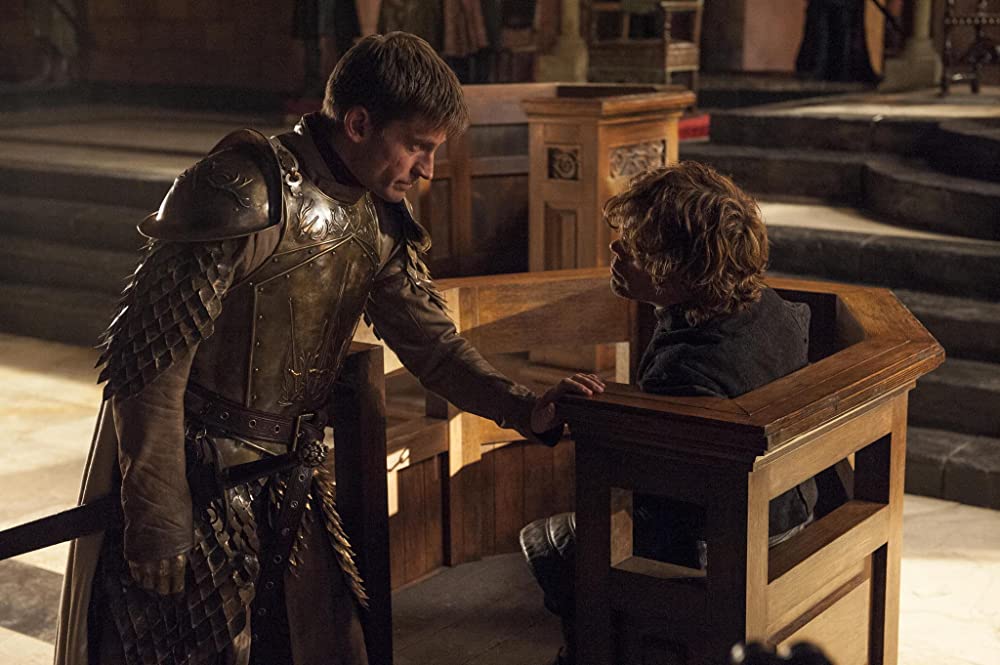
The remaining characters from House Lannister also underwent serious development issues that contradicted who they were as characters in previous seasons. Tyrion Lannister (Peter Dinklage) used to be a clever, smart and cunning individual who knew how to play the game and manipulate his way out of hard situations. After killing his father Tywin Lannister (Charles Dance) and his ex-lover Shae (Sibel Kekilli), Tyrion becomes a devastated individual who can only think about how cruel the world is and taking revenge on his sister. At least that’s what happens in the books. The show, instead, makes Tyrion into a bumbling, drunken idiot who stumbles across the role of Hand of the Queen to Daenerys Targaryen. He doesn’t so much earn the position, but rather is handled the role because we’re told he’s still smart, even though he keeps making bad decisions and bad battle strategies. The super-charismatic Dwarf of Casterly Rock we all fell in love with becomes a caricature of himself by the end of the show.
Jaime Lannister (Nikolaj Coster-Waldau), also known as “The Kingslayer,” is a character who we all hated for pushing Bran Stark out a window, having sex with his twin-sister and for being a spoiled, unpredictable warrior. But eventually, we as an audience grow to love him over time as we follow Jaime on his redemption arc. After losing his hand in defense of Brienne of Tarth (Gwendoline Christie), we learn the seven kingdoms resent him for having killed King Aerys II “The Mad King” Targaryen. Although considered treason and punishable by death, he did so to save the citizens of King’s Landing as the old king was planning to burn the city with wildfire. If we were to oversimplify Jaime’s journey, he’s a character who tries so hard not to care about anyone other than himself and his family, but can’t help but play the noble knight who wants to do the right thing. That’s why he killed the Mad King in the first place and why he left everything behind to go North and help fight the White Walkers. The problem with that is, after finally leaving his sister to aid the North and accepting his feelings for Brienne, the writers then tell us that actually Jaime doesn’t care about the well-being of others. That he used Brienne for a one-night stand and only cares about himself and his sister as he goes back South to die with her. Eight seasons worth of character development thrown out the window, just like Jaime does with Bran, for no real reason.
Cersei Lannister might be one of the few characters that, for the most part, stayed true to herself from start to finish. Somebody the audience loved to hate for all the right and wrong reasons. But like the characters we’ve already discussed, she wasn’t safe from becoming a victim of the show’s declining writing. At the end of season 1 of Game of Thrones, the war of the five kings erupts as Joffrey Baratheon (Jack Gleeson) orders the execution of Ned Stark. Westeros is then torn-apart as other lords declare themselves king of the seven kingdoms. There is a cause and effect here, Ned Stark is murdered, a war erupts because of it. At the end of season 6, Cersei destroys the Sept of Baelor with wildfire, just like the Mad King would have, killing the heirs to House Tyrell and the leader of a religious group. Afterwards, she declares herself Queen as Westeros watches in terror. There’s a cause, here, for the realm to want to overthrow her after massacring a noble house, but there’s no effect. Cersei suffers no consequences for her actions and, as a result, her character is not given a conflict to fight off, which is where Cersei is at her best. In the end, Benioff & Weiss instead chose to waste Lena Headey’s talents as an actress by having her stand on a balcony drinking wine in the show’s final season, with little to no lines of dialogue, only to be killed by debris and some rocks.
THE MOTHER OF DRAGONS
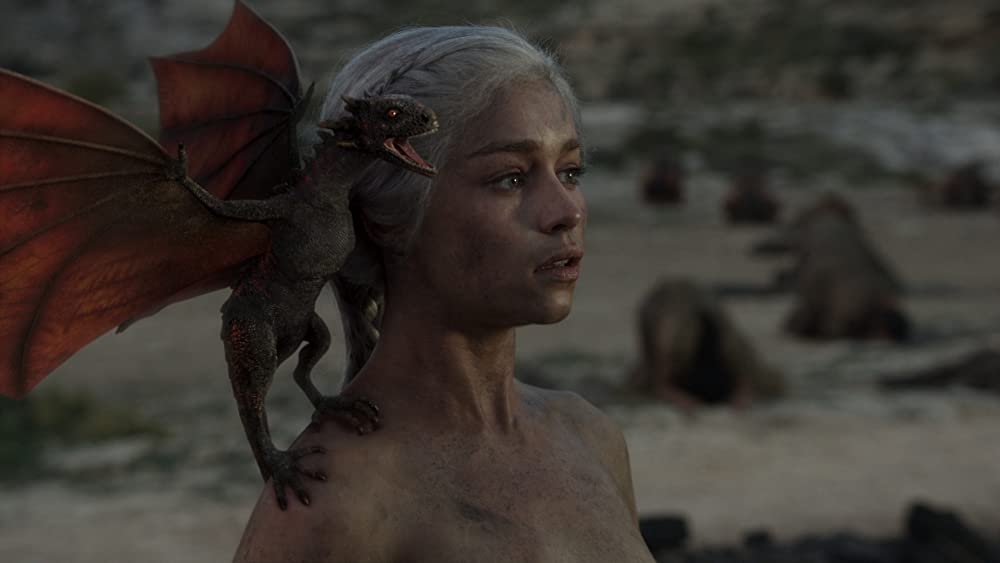
Without a doubt, the biggest offender of them all has to be the way the writers handled the character of Daenerys Targaryen. A born princess who, since birth, has been running for her life, moving from one place to the next in order to survive. As the daughter of the Mad King, Daenerys and her older brother Viserys (Harry Lloyd) have been trying to return to Westeros and reclaim their father’s throne. Daenerys is then sold off to Khal Drogo (Jason Momoa) as his bride in an attempt to acquire the Dothraki warriors as Viserys’ personal army. After being physically and mentally abused by her older brother, raped more than once by her then new husband, Daenerys grows tired of the way she’s been treated by the people who were supposed to protect her and becomes the leader she was born to be after Viserys and Drogo’s death.
What makes her ending particularly infuriating and upsetting is that, for eight seasons straight, Daenerys was shown as a caring and determined leader who was pursuing power not just for her own self interest, but to help those in need. Was she ruthless at times? Sure, but she wasn’t any worse than Tywin, Cersei Lannister, or even Jon Snow when forced to execute traitors in the Night’s Watch. For example, people try to argue that Daenerys’ actions in the show were cruel for crucifying 163 slave masters. But she did so in response to a worse deed, the crucifixion and disembowelment of 163 slave children. An eye for an eye. If somebody like Jon Snow were to have done the same, he would be called a badass and a hero, but, since Daenerys is a woman, she’s called cruel and crazy for the violence she commits.
We’re shown Daenerys’ rise to power throughout the series as she constantly puts others’ interests above her own. She stops pursuing the Iron Throne in favor of helping Jon Snow in his fight against the Night King. Once that’s done, as sudden and anticlimactic as it ends, the writers then tell us that the main villain the show’s been building up to is not the Night King nor Cersei Lannister, but Daenerys Targaryen. We’re told that Daenerys grieving the loss of her two dragons and her best friends, Jorah (Iain Glen) and Missandei (Nathalie Emmanuel), is a bad thing and that she should be killed for making emotionally unstable decisions during a difficult time. In a moment of anger, Daenerys burns King’s Landing with her last living dragon, Drogon, even though she had already won the war for the throne. To top it all off, Benioff & Weiss then try to frame Daenerys as some kind of Hitler figure in the show’s final episode. Daenerys is murdered by Jon Snow, as we’re made to believe that it’s good that he’s doing so for the well-being of the realm and her own. The journey of a young girl who chooses to take her fears and turn them into strengths is cut short because, frankly, the show’s writers couldn’t decide, or didn’t care, on what story to tell.
Benioff & Weiss later tried to justify their decisions by making us believe it was all part of the plan and if you didn’t see it coming, then it was your fault for not paying attention. They even tried to convince us that Daenerys having an emotionless reaction towards her brother’s murder was them foreshadowing that she was crazy all along, even though moments prior to his death he was threatening to kill her and her unborn baby. It goes off to show the double-standards in their writing. Arya is never called crazy for massacring an entire family, but Daenerys is. Sansa is never called crazy for feeding her abuser to the dogs and smiling while she does it, but Daenerys is. Even Cersei Lannister, after blowing up a church filled with hundreds of innocent people, she is not called crazy. Yet Daenerys is, for feeling alone and losing those closest to her.
A RUINED LEGACY
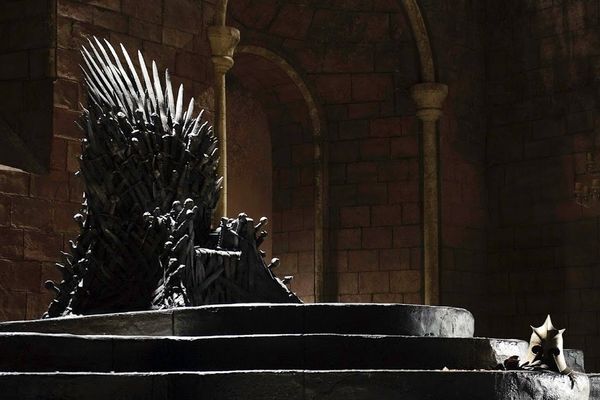
Often, people will question fans for holding a grudge against the show when it’s just that, a TV show. What many don’t understand is that these stories aren’t just pieces of entertainment to some people. They’re forms of escapism from real world issues. I began watching Game of Thrones back in my first year of high school, right before Season 6 was released. I was in a dark place, and I didn’t know what I wanted to do with my life. This led me to almost give up on myself and my education, thinking, “What is the point of this if I’m going to grow up to be a nobody?” To this day, I don’t know where my life will lead me, but I’m fighting to become somebody, and I owe that encouragement to storytelling. In a story, it doesn’t matter what your background is: you can still overcome impossible obstacles. Stories like these can inspire you to do the same, and that’s what Game of Thrones did for me. It made me believe that maybe, one day I, too, could create something as grand and epic as what Martin had done with “A Song of Ice and Fire”, despite my own insecurities. That’s why such a terrible ending hurts so much. In the end, the HBO hit series tells you how it didn’t matter that you took on this long journey, because the filmmakers themselves were too busy rushing the show to the finish line so they could go work on other projects.
Despite how massively disappointing Game of Thrones’ final seasons were, HBO remains confident in this universe. They’re currently filming their very first spin-off show, House of the Dragons, based on George R.R. Martin’s “Fire & Blood”, with more spin-offs on their way. Needless to say, HBO needs to earn back the trust of their fans, which is why they are investing a lot of resources into this new series following House Targaryen.
What a lot of people often forget, which adds to the tragedy of the show’s ending, is that Game of Thrones was, and still is, very much revolutionary for its time. The reason why most of your favorite modern-day TV shows on Netflix, Hulu, Disney+ and other streaming platforms look and feel so cinematic is because Game of Thrones showed filmmakers they could take risks on the small screen. Suddenly, television wasn’t a lesser medium to approach storytelling, but a huge opportunity to explore characters and enrich stories that otherwise could never be told as feature films. The 2010s was a huge decade for television in which we’re now in a place of no return that was pioneered with the help of Game of Thrones.
All things said, there is a conversation to be had about whether or not the show’s success lies in its producers, writers and filmmakers, or in George R.R. Martin’s book series. Of course, the show put the books on the map, and adaptations are hard to pull off, and the fact that we got four solid seasons is a win in itself. But clearly, as soon as the show tried to do its own thing, that is when its quality went downhill. Once you dissect the writing of the last four seasons, you will find Game of Thrones disappointed fans not because they ran out of books, but because they ran out of creativity and passion for these characters.
If there’s anything that’s been proven in the past two years, it’s that Game of Thrones will no longer be remembered for its great early seasons, memorable characters, iconic battles and pioneering a new wave of television, but it will be looked back on for its disappointing ending. Are there people who enjoy the show’s final seasons and how it wrapped up character arcs? Of course there are. There will always be two opposing sides to film and TV because art, as an art form, is subjective. I hope the years are kind to Game of Thrones and fans can come to terms with how it ended, though I don’t see that happening any time soon, because you really have to love something to be this disappointed.
So, happy 2-year anniversary, Game of Thrones! We all miss who you used to be….
House of the Dragon premieres on HBO Max on August 21, 2022.

